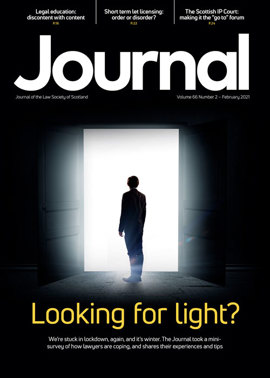Pensions: a bill with teeth

Corporate sponsors of defined benefit pension schemes currently have the choice whether to engage with the trustees of their pension schemes and to ask The Pensions Regulator (TPR) to “clear” proposed business changes that may adversely affect their pension (and so security of members’ benefits), to obtain protection from sanctions. After an initial flurry of applications, many instead chose to make their own private assessment and not to apply for clearance. However, high profile collapses leaving large pension scheme deficits, such as BHS and Carillion, and the recommendations by the House of Commons Work & Pensions Committee (report published 25 July 2016), have prompted statutory changes.
The Pension Schemes Bill, introduced in the House of Lords in January 2020, passed its final hurdle on 19 January 2021, a House of Lords debate on amendments. It covers a range of measures, including strengthened powers for TPR and civil and criminal sanctions in part 3.
The Government confirmed its intent to protect by refusing to make changes to restrict those who may come under clause 107 (sanctions for avoidance of employer debt), in case loopholes were introduced. It stressed that its aim is not to hinder business but to “target individuals who intentionally or knowingly mishandle pension schemes or endanger workers’ pensions by behaviours such as chronic mismanagement of a business or avoiding pension liabilities”. Royal Assent is expected imminently, with a phased introduction and more detail to come in regulations.
Part 3 reforms
- Part 3 adds two new tests that, if met, means TPR can issue contribution notices requiring payment to a scheme or the Pension Protection Fund, where TPR considers there have been steps to avoid an employer debt. Any person who knowingly assists in any way can also be served with a contribution notice. Joint and several liability is possible. Statutory defences are also set out.
- It reduces the scope of scheme sponsors to make their own “commercial assessment” of the impact, by requiring “persons involved in a corporate transaction to make a statement setting out information about the event and how any detriment to a defined benefit pension scheme, as a result of this event, is to be mitigated”. “Event” is an umbrella term and is not restricted to sales, acquisitions and restructuring, so can include re-financing, dividends or other assets leaving a company or group, or other events
- It strengthens TPR’s powers to gather information. TPR is to be notified of notifiable events and then of material changes (including if the event is not going to or does not take place), with a mandatory accompanying statement. Alongside that, TPR will have authority to enter a wider range of premises and to require certain individuals to attend an interview. This could be the employer, a person connected with the employer, an associate of the employer or a person of prescribed description.
The new civil penalty up to £1 million applies to non-compliance with any of these, without reasonable excuse, and to the provision of false or misleading information to TPR or to the trustee or managers of the pension scheme and other compliance failures.
- Part 3 also adds three new criminal offences, in clauses 106 and 107:
- failure to pay the debt due before the date specified in the contribution notice;
- avoidance of employer debt as result of an act or failure to act or course of conduct, with avoidance as its intention and without a reasonable excuse;
- conduct risking accrued scheme benefits, with actual or implied knowledge of the negative impact on members’ benefits, with the possibility of the new civil penalty of up to £1 million and/or fine, and/or, on indictment, imprisonment for up to seven years. As stated above, the pool of potential targets is deliberately wide.
What advice to give?
A view often expressed by corporates and their advisers is that what is good for the corporate is good for the pension scheme, and so for scheme members. That is not necessarily correct, and indeed the reverse may be true.
What advice would I give to any corporate sponsor of a defined benefit pension scheme looking at changes to the corporate financial status quo? Planning at an early stage may well save time and money later. Challenges might come because of steps not identified as triggers, for example, paying dividends or refinancing, if in fact they are deemed to have led to scheme members losing out. Given these new powers and consequences, taking advice early and carefully considering whether to contact TPR, and as appropriate engaging early with the pension scheme trustees, is prudent risk management.
Update: The Pension Schemes Bill received Royal Assent on 11 February 2021.
Regulars
Perspectives
Features
Briefings
- Criminal court: Discount season
- Family: Capital values in uncertain times
- Employment: Can employers require staff vaccination?
- Human rights: Protecting the child claimant
- Pensions: a bill with teeth
- Charities: commerce as public benefit?
- Property: Playing safe: on the right track?
- In-house: Wide world of in-house
In practice
- Priorities for our Parliament
- The Word of Gold: The gift that keeps on giving
- TRS: more trusts, more information, more access
- A proper conclusion
- The Eternal Optimist: Putting resolve into resolutions
- Appreciation: Professor Emeritus Robert Rennie
- Ask Ash: Trainee in a rut
- Royal Faculty invites new members







